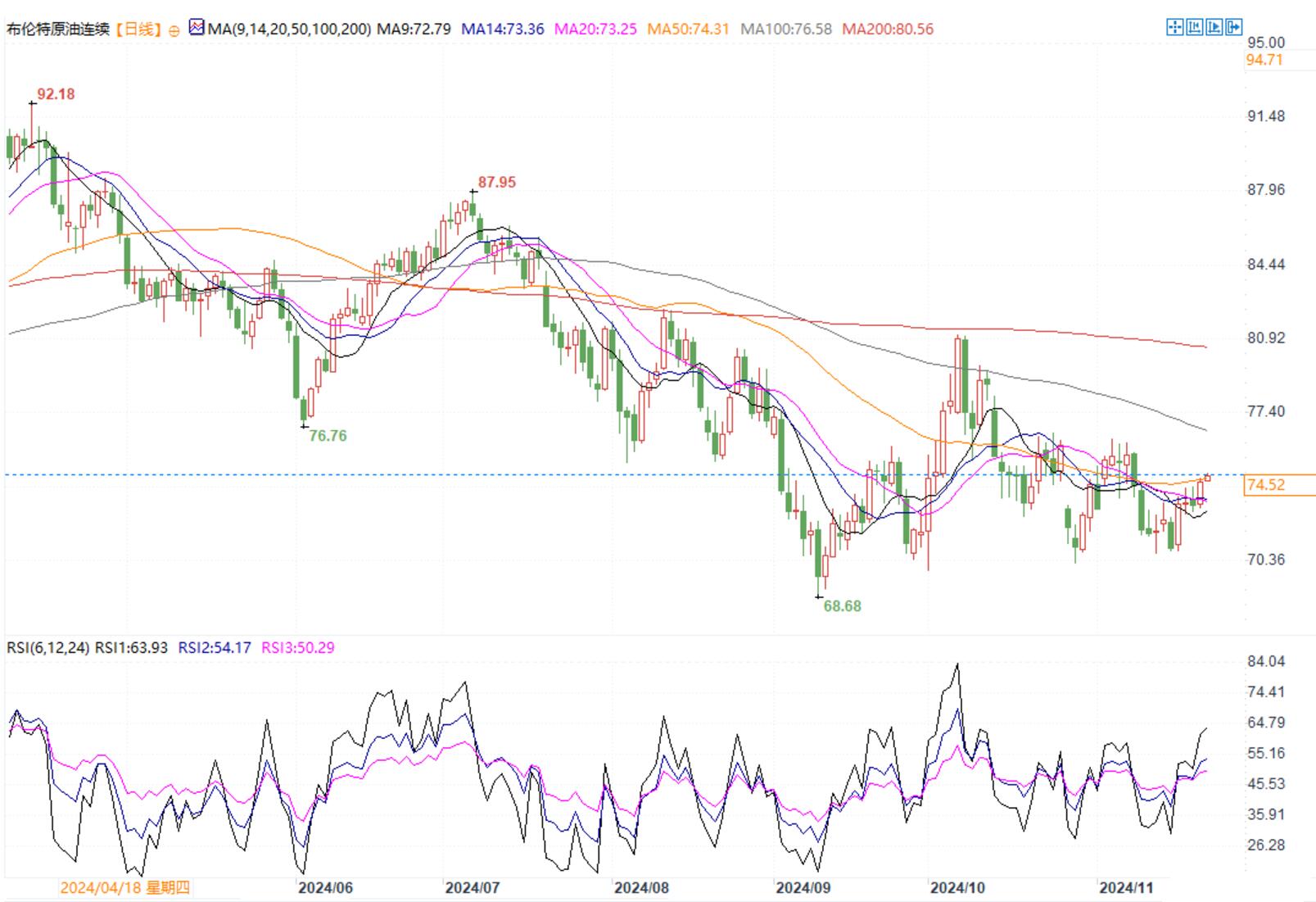Standard Chartered: Non OPEC supply slowdown ignored, OPEC+may voluntarily reduce production by 2025
Standard Chartered Bank released data stating that global oil demand in September was 103.012 million barrels per day, with global demand exceeding 103 million barrels per day for the fourth consecutive month. The year-on-year growth rate of demand in September was 1.136 million barrels per day, slightly lower than the average level of 1.332 million barrels per day from the beginning of the year to the present, but improved compared to August, when the growth rate was only 631000 barrels per day.
Previously, Standard Chartered Bank pointed out that compared to the early post pandemic period, the growth of oil demand has slowed down, rather than absolute oil demand. In fact, Standard Chartered Bank pointed out that global oil demand has reached a series of new historical highs this year.
Standard Chartered Bank reported that the largest demand growth in August came from South Korea (219000b/d), Italy (185000b/d), Saudi Arabia (117000b/d), Türkiye (99000b/d) and Spain (88000b/d). Due to the unexpected growth in August, Standard Chartered Bank has now raised its global demand growth forecast for 2024 to 1.45 million barrels per day.
Standard Chartered Bank pointed out that traders continue to ignore the fact that non OPEC supply has slowed more than demand so far in 2024.
According to IEA estimates, non OPEC supply growth will slow down from 2.4 million barrels per day in 2023 to 930000 barrels per day in 2024, while demand growth will slow down from 1.99 million barrels per day in 2023 to 860000 barrels per day in 2024. Therefore, the IEA estimates that the growth rate of non OPEC supply in 2024 will be 1.47 million barrels per day slower than supply, while demand growth will slow down by 1.13 million barrels per day.
Regarding the medium to long term outlook, Standard Chartered Bank reported that its model (as well as EIA's model) shows that market conditions will allow for all voluntary production cuts by OPEC+to be reproduced by 2025, while inventory growth will not exceed the level guaranteed by increased demand, if OPEC+countries adhere to their targets and repay some of their past excess production.
Commodity experts predict that OPEC+'s actions may determine the recent and medium-term trend of oil prices. Standard Chartered Bank stated that the negative sentiment that has dominated the oil market over the past three months can largely be attributed to a misunderstanding of the gradual reduction mechanism of voluntary production cuts in eight OPEC+countries. Many traders are concerned that the balance between oil demand growth and non OPEC+supply growth may not offset the scale of OPEC+production recovery, leading to oversupply in the oil market. However, experts point out that this assumption contradicts the continued commitment of OPEC+member countries to reduce production, which will depend entirely on market conditions rather than being automatic.
Standard Chartered Bank stated that the delayed return of more oil to the market does not necessarily mean that OPEC believes that the physical market cannot absorb oil, but rather reflects its awareness that the extremely pessimistic forecast for the 2025 oil balance has viewed oil reduction from this perspective.
Standard Chartered Bank stated that OPEC's latest statement reinforces the argument that the pace of production cuts will depend on the market, rather than being automatic as traders fear. This understanding may have driven the recent increase in oil prices.

Brent crude oil daily chart
Tips:This page came from Internet, which is not standing for FXCUE opinions of this website.
Statement:Contact us if the content violates the law or your rights
